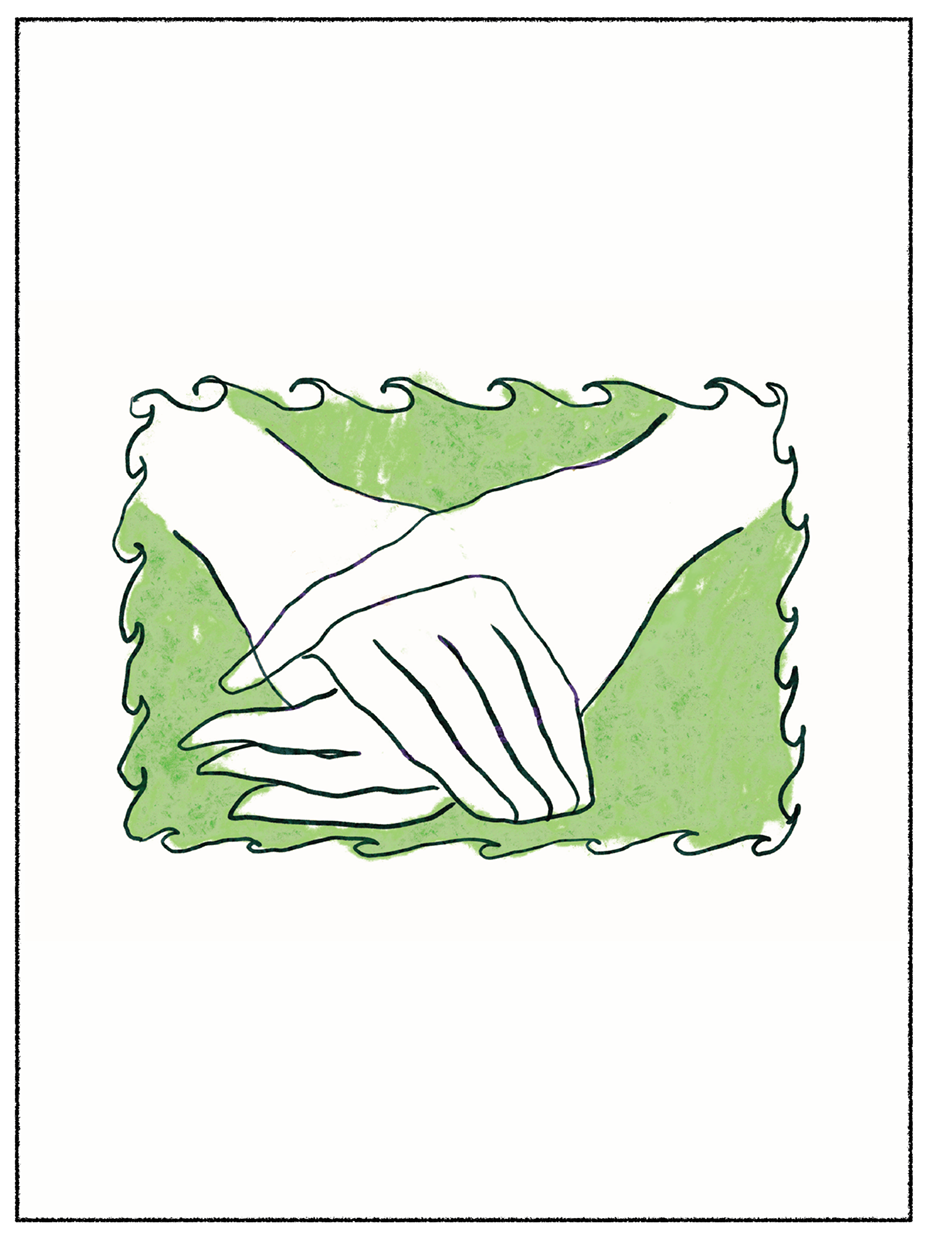
Illustration: Ada Tuncer
Stories
Overcoming Collective Trauma - Part 2
Assistant Professor of Social Work Aslıhan Nişancı elaborates on society’s recovery processes and our duties in these times.
Text Seda Yılmaz
Individuals and societies face significant hardships due to climate crisis, natural disasters, wars, and forced migration. As our future becomes increasingly uncertain, we are looking for ways to be more mentally resilient individually and collectively. Experts from various disciplines guide us through.
Aslıhan Nişancı, Assistant Professor of Social Work
How would you assess the well-being of society following the disaster?
Since it was a large-scale disaster, our society is considerably in shock. And this trauma has several different phases. For individual traumas, a person exposed to long-term traumatic experiences may adapt to the crisis and accept it as a form of existence. They may feel safer in the familiar context of crisis. My impression is that we’re experiencing something similar on a collective level. In recent years, we’ve seen one traumatic event after another. Since we’re accustomed to this way of being, we can recover from severe crises quickly. Society’s immense tendency to show solidarity is partly related to this.
After the disaster, there is a growing need for psychosocial support for people directly affected by the earthquake and the rest of society. Are we prepared for this?
There’s an intervention pyramid for psychosocial support in emergencies. At the bottom of the pyramid are housing and safety needs. So, fulfilling the housing, food, and safety needs of people who experienced the earthquake is imperative. Then, we must focus on the mental and health-related problems of individuals and society caused by collective trauma. From the first day, psychologists and social workers went to the quake zone and provided as much as they could regarding psychological first aid. However, Turkey has some way to go in terms of working with society.
What are some steps we can take to work as a society?
Sociology and social work disciplines seek society to shape the trauma recovery process. A recovery model that relies on constant support causes societies to grow weaker, similar to individuals. Let me explain it with an example. At first, it was vital to build food banks in affected areas. After a while, we must act with local people’s participation and initiative. We need to mobilize social healing mechanisms based on their needs and lifestyles.
Even those far away who did not personally experience the earthquake share this social trauma. What role can we take in achieving social healing?
In traumatic events, it usually does a great deal of good to return to our routines, both for those who experienced the earthquake and those who didn’t. This doesn’t mean we’re to forget or cover up the realities. However, long-term halts in routines may intensify the feeling of crisis. While going back to our routines, we also need to collectively experience our grief without suppressing feelings. People in disaster areas have experienced severe disruption in their daily routines, and it might take a while for them to return to their daily habits.
We can all contribute to social healing. Especially those outside the earthquake area should test their boundaries by asking themselves, “To what extent can I offer help?” Some can just pray and provide financial aid to connect with the people in the region emotionally. Others who are more active can visit the cities that have been affected. We must be productive and helpful during this process without repeatedly traumatizing, burdening, or consuming ourselves.
How can we overcome social trauma?
Social support is crucial for everyone. In Turkish culture, it is customary to surround our loved ones following a loss. This is a similar process but on a collective level. We need to be in constant solidarity to survive. We also need to share our feelings with others and, if necessary, mourn and commemorate our losses together.





